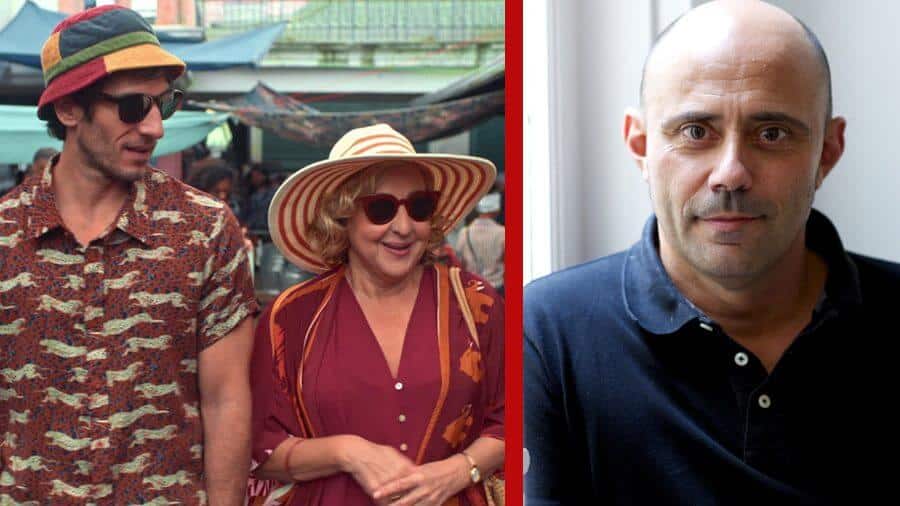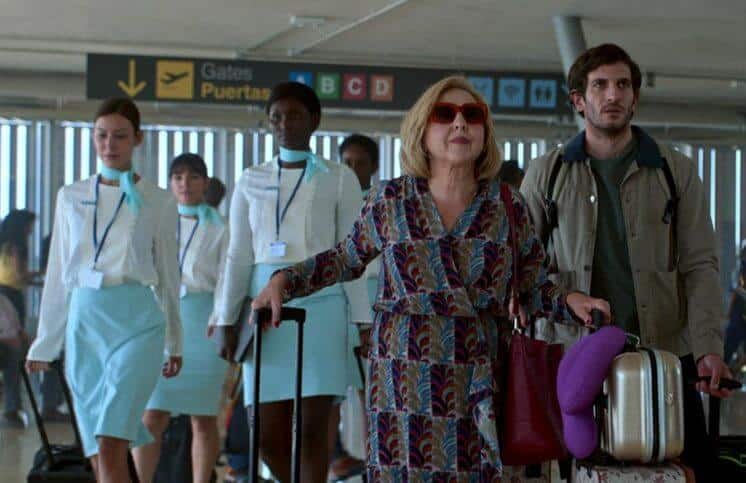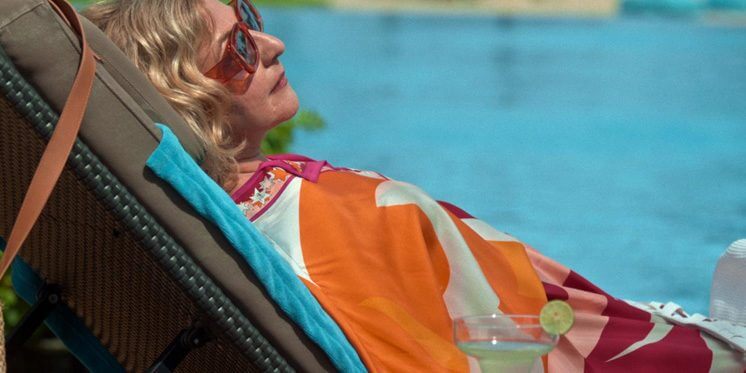
Honeymoon with my Mother and Juan Gordon – Picture: Netflix / Morena Films
Outside of the English-speaking world, Spain is one of Netflix’s biggest production hubs. As fans of Money Heist and Élite will perhaps already know, the country produces dozens of series and films annually for the company.
Ahead of the premiere of the new Spanish Netflix original film Honeymoon with My Mother (aka Amor de Madre), Christopher Meir, from the academic blog Netflix Original Movies Reviewed and a researcher based at the Universidad Carlos III de Madrid, sat down with the film’s producer Juan Gordon, who is also one of the founders of Morena Films, one of Spain’s most critically and commercially successful independent production companies. In addition to the major box office and critical hits like their recent film Campeones (which is getting remade in Hollywood), Morena has also made the series Diablero for Netflix, as well as two films thus far: Below Zero and The Two Catalonias. In the interview below, Gordon tells us about the making of Honeymoon before and after Netflix got involved in the project, a story that tells us a lot about Netflix’s relationship with its producers as well as the difficulties that shooting during the pandemic entailed.
Honeymoon with My Mother debuts Friday April 29th on Netflix.
CM: Can you start by saying a bit about the idea behind Honeymoon with My Mother, where the idea came from and how you came to work with Netflix on it?
JG: The idea came from the other producer, Sofía Fábregas because this is a project that’s a co-production between Morena Films and Sofia. Sofia used to work as a developer and producer, but she has now been named head of Spanish original series for Disney+. The idea was hers and she brought it to me with two writers attached, Cristóbal Garrido and Adolfo Valor [editor’s note: writers who also worked on the series Cocaine Coast, a Netflix original series in the US]. I thought the idea was good and so we at Morena said OK, let’s make a deal, and let’s try to do this together.
We started discussing possibilities. Originally this was going to be a film to be released theatrically. We had interest from Universal Studios España and the idea was to finance it in the traditional way through pre-sales, free TV and pay TV.Then some subsidies, tax exemptions, etc.
It’s a story of a couple that goes on honeymoon. Our idea originally was to shoot in the destination of the Honeymoon, the Canary Islands. Because we had just released Campeones, Netflix was very eager to work with us on something else, a comedy. They asked what we were working on. I said we were working on Honeymoon with My Mother but it’s set up in principle with traditional financing but they read the script and really loved it. I was quite reluctant to do it because we had made a lot of money on Campeones and my idea was to repeat the same model. Eventually, though, we reached a deal that was agreeable to all parties.
CM: What attracted you to Honeymoon with My Mother?
JG: I think it’s quite universal in the sense that we all have a mother, but it’s very rare that a son or a daughter knows their mother other than as a mother. The film is about the woman behind your mother, about discovering a person who has been hidden and is usually hidden behind her obligations as a mother or as a wife, which is a universal theme for any country.
The film was very funny the way that Adolfo and Cristóbal wrote it. We had the opportunity to do this film with two great and commercially successful actors: Carmen Machi and Quim Gutiérrez.
CM: Audiences outside of Spain may not know Carmen Machi and Quim Guitiérrez but they’re very well known on Netflix for example they appear in quite a few Netflix Originals works, such as the Spanish version of Criminal (Machi) and the comedy series The Neighbor (Gutiérrez). When did they join the project?
JG: Carmen was on board before Netflix and Quim came after Netflix came on board. Our idea was always to do it with Carmen as the mother and in fact, Carmen was very helpful in understanding the character as well. She provided a push towards a more realistic character.
It was very clear to us that this was a commercial film that it needed to have some well-known faces and the good news is that those well-known faces happened to be great actors so we were in very good hands from the beginning.

Honeymoon with my Mother and Juan Gordon – Picture: Netflix / Morena Films
CM: Filming on this project started in January 2020, so it must have been a difficult project to complete during the early days of the pandemic.
JG:. Obviously, the film had extra costs because of the pandemic. We had started working when the lockdown was declared in Spain, we had been shooting for a week. I felt that the lockdown was never going to come to Mauritius – where much of the film was shot – I remember saying this is going to be the only Netflix film that won’t stop shooting because we’re on a remote island in the Pacific and no one is going to know about us. Wasn’t I wrong! Three days later, a lockdown was declared in Mauritius and we had to stop shooting. The airspace was closed so it was difficult to get everyone back home. Netflix really made an effort to help and really supported us along the way. Then we came back six months later to continue the shoot and two of the actresses got COVID on the way to Mauritius on the flight so they were hospitalized with a policeman at the door because they were the only people with COVID on the island so they were like a national security issue. It was quite an ordeal.

Honeymoon with my Mother and Juan Gordon – Picture: Netflix / Morena Films
One of them got out two weeks later but the other one, Justina Bustos, kept on testing positive for the whole stay; she was in hospital for five weeks. When we decided we’d shot everything we could without her, we decided the crew would be leaving for Spain and I would stay in the island till she tested negative. Miraculously, she tested negative the day the crew was heading out. So, we said let’s finish whatever we have left to do in the Canary Islands when everyone is available again. We shot for five days in January and that was the third time we started to shoot. Then we finally finished principal photography.
CM: What else did Netflix contribute as a partner on the project, besides the support in Mauritius and the financial resources?
JG: They gave us very intelligent script notes that helped us to improve the overall film. I was very happy, especially on the creative side but also on the logistics side because had we done this film on our own it would’ve been a disaster economically. Remember Netflix was the only company at the time that had an insurance company that covered a pandemic.
CM: Is there a possibility of this film turning into a franchise?
JG: It’s a possibility. It could be Honeymoon with My Father, it could be so many things. I want to see how it works, my feeling is that it’s going to work really well and we should be doing another one, yes.
CM: You and your colleagues at Morena Films have made quite a bit for Netflix. Readers of this website will be interested to know you personally were one of the producers on the Netflix series Diablero and Morena has made the film Below Zero among other works. Do you get a lot of audience feedback from the company?
JG: We don’t get a lot. We get the usual comment about the approximate number of people who have seen it which we cannot disclose. I am sure that Netflix is the best at analyzing data and they have all the data they want, but it’s not their position to release that data in general. I don’t think they release it to journalists either. They give us a bit of information about how it’s gone but not much. To tell you the truth, as long as they’re happy I don’t have an issue.
CM: Do you and your colleagues have any other projects in progress with Netflix that you’d want to draw readers’ attention to?
JG: Yes, we have some in development, and with other projects we’re in discussions. Watch this space!




